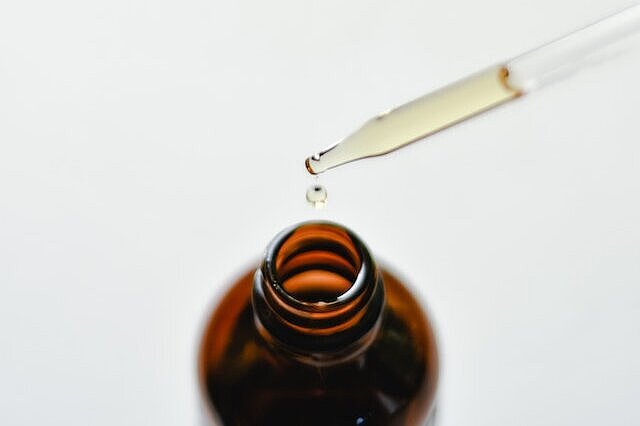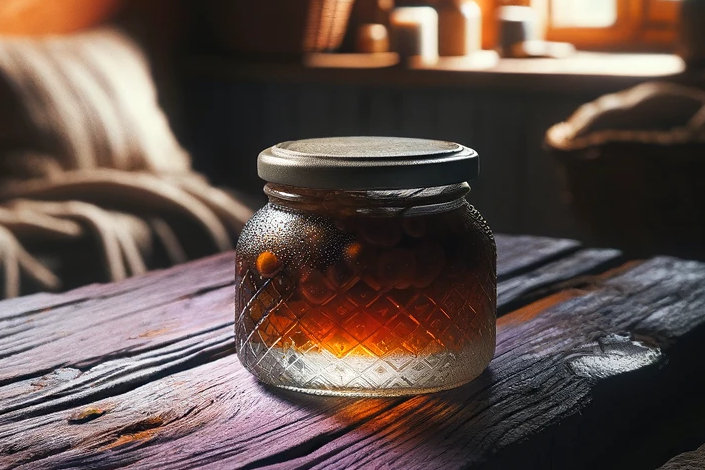Benzethonium chloride

What is benzethonium chloride?
Benzethonium chloride is a quaternary ammonium compound that has a positive charge and acts as a preservative, antiseptic and anti-infective. This means that it prevents the growth of bacteria and fungi in products or on the skin. Benzethonium chloride is a white to yellowish solid that is highly soluble in water, ethanol and acetone. The molecular formula is C27H42NO2+ Cl- and the molar mass is 448.1 g/mol .
Where is benzethonium chloride used?
Benzethonium chloride is used as a preservative in the cosmetics industry and in pharmaceuticals. Typical areas of application are the preservation of injections or eye and ear drops. Benzethonium chloride is also used as a reagent in the determination of protein in urine and cerebrospinal fluid (CSF). As a cationic detergent, benzethonium chloride is also used in biochemistry as a protease inhibitor.
What are the advantages of benzethonium chloride?
Benzethonium chloride has the advantage that it is effective against gram-positive bacteria and fungi and can therefore prevent or treat infections. The weak effect against gram-negative bacteria can be enhanced by combining it with EDTA. Benzethonium chloride can also be used as a disinfectant for wounds or skin irritations as it has an antiseptic effect.
What are the disadvantages of benzethonium chloride?
Benzethonium chloride also has some disadvantages that you should be aware of. Firstly, benzethonium chloride is toxic when ingested orally. After gastrointestinal absorption, it causes vomiting and convulsions, even coma. The lethal dose for humans is 50 to 500 mg/kgKG. On the other hand, benzethonium chloride is incompatible with anionic ingredients, which means that interactions or incompatibilities may occur if it is mixed with other products. In addition, benzethonium chloride can cause irritation when applied externally in very high doses (> 5 %).
How does benzethonium chloride affect dogs?
Benzethonium chloride can be both beneficial and harmful to dogs, depending on how it is applied. If you give your dog a product containing benzethonium chloride or apply it to their skin, you should always follow the recommended dosage and application instructions. Too high a concentration or too long an application time can lead to skin irritation or symptoms of poisoning. If your dog accidentally eats or licks a product containing benzethonium chloride, you should consult a vet immediately, as this can have serious health consequences.
Benzethonium chloride is an ingredient that is found in many products and has various effects. It can act as a preservative, antiseptic and anti-infective, but can also be toxic or irritating. If you give your dog a product containing benzethonium chloride or apply it to his skin, you should always be careful and follow the instructions.
Properties 10
Are you looking for other ingredients with a specific property?
Just click on them to find more.
If you notice any signs of hypersensitivity or poisoning in your dog, you should see your vet immediately. We are not a substitute for a vet, but we try to be as accurate as possible. Every dog reacts differently and we recommend you get a second opinion or consult your vet if in doubt.
Stay healthy and take good care of your four-legged friend!😊
Similar to Benzethonium chloride
Ethanol can enter the dog's body in various ways. The most common route is oral ingestion, e.g. when the dog consumes alcohol-containing drinks, food or medication. Ethanol can also enter the dog's...
Thymol is a natural organic compound found mainly in the essential oils of thyme (Thymus vulgaris) and some other plants. It is known for its strong, spicy scent and its antimicrobial, antifungal...
Triclosan is a chemical compound that is used in a variety of consumer products due to its powerful antibacterial and fungicidal effects. From toothpaste and soaps to textiles and kitchen utensils,...
Chlorhexidine is an active ingredient that belongs to the group of biguanides. It has an antibacterial and antifungal effect, i.e. it kills bacteria and fungi or inhibits their growth. Chlorhexidine...


